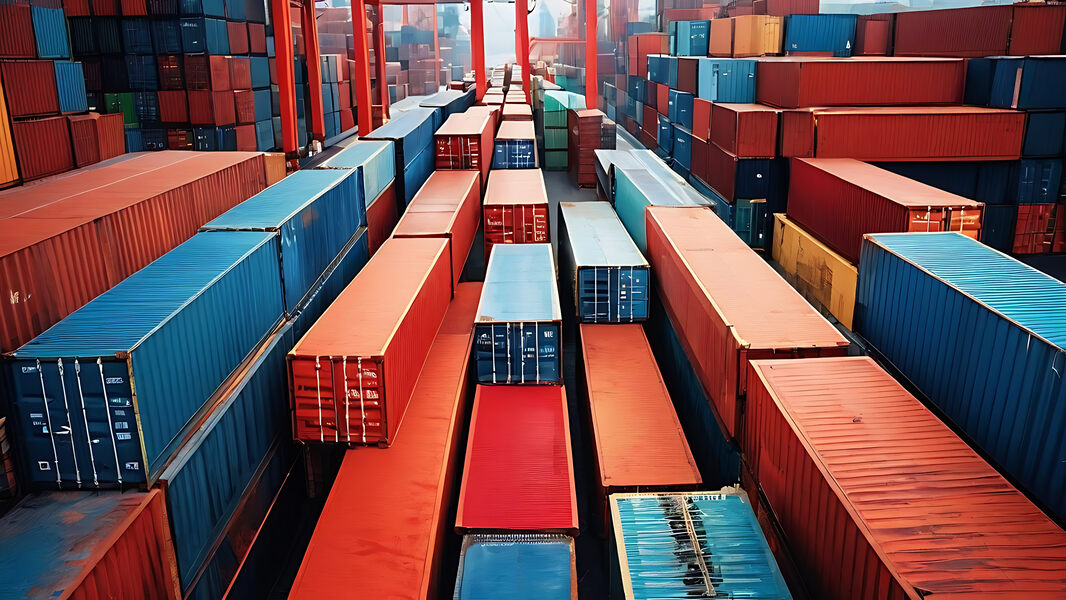Severin Dressen
Zurich Zoo director Severin Dressen explains how his organization is being proactive in tackling the loss of biodiversity and helping to shape a sustainable coexistence between humans and nature...

by Simon J. Evenett Published 6 November 2024 in Competitiveness • 5 min read
It would be a mistake to associate this inward turn only with Republican politicians; the Biden Administration took various measures in May 2024 to restrict US market access to imports and the new administration post the November 2024 election may accelerate protectionist measures.
Given that the US imports more than $3tn worth of goods each year, loss of access to the US market would have a significant adverse impact on the top-line revenue of many foreign firms.
But sectors differ in their exposure to US markets in both absolute and relative terms, so blanket statements about exposure to America’s inward turn are unwise. Using international trade data that leverages the UN method of grouping products into “chapters,” a recent Global Trade Alert briefing analyzes which foreign suppliers are most dependent on US market access and therefore are most vulnerable to further protectionist measures.
A foreign sector is more vulnerable to the loss of access to the US market when:
The following suppliers to the US are deemed to be the most vulnerable to high tariff charges or restricted market access:
By contrast, the following sectors are less exposed to potential tariff increases:
In eight sectors, growth in imports of non-US products is so weak that full replacement of lost US market sales would, on current trends, not take place until after 2035.
This highlights the importance of penetrating and growing market share in alternative export destinations to hedge against the potential loss of US market access. Geographic sales diversification can help mitigate this trade policy risk.
Even if the US does not escalate its recent policy of imposing higher import barriers, increased trade policy uncertainty will take its toll on investment, market entry, and sourcing decisions. Fortunately, there are plenty of commercial opportunities beyond US markets.

Professor of Geopolitics and Strategy at IMD
Simon J. Evenett is Professor of Geopolitics and Strategy at IMD and a leading expert on trade, investment, and global business dynamics. With nearly 30 years of experience, he has advised executives and guided students in navigating significant shifts in the global economy. In 2023, he was appointed Co-Chair of the World Economic Forum’s Global Future Council on Trade and Investment.
Evenett founded the St Gallen Endowment for Prosperity Through Trade, which oversees key initiatives like the Global Trade Alert and Digital Policy Alert. His research focuses on trade policy, geopolitical rivalry, and industrial policy, with over 250 publications. He has held academic positions at the University of St. Gallen, Oxford University, and Johns Hopkins University.
16 September 2021 • by David Bach in Sustainability • 1 min read • 
Zurich Zoo director Severin Dressen explains how his organization is being proactive in tackling the loss of biodiversity and helping to shape a sustainable coexistence between humans and nature...
14 September 2021 • by Karl Schmedders, Rick Van der Ploeg in Sustainability • 5 min read
Those who argue that climate change has little to do with macroprudential risk management are offering a counsel of despair. If the 2008 global financial crisis revealed anything, it is that regulation...
8 September 2021 • by Johannes Buggle, Jean-Pierre Danthine in Sustainability • 9 min read
Incentivizing better business and consumer behavior via tax and market-based instruments will preserve the planet, say Johannes Buggle and Jean-Pierre Danthine. Here’s how companies can transform. ...
6 September 2021 in Sustainability • 5 min read
Organizations can impact equality, inclusion and diversity (EI&D) through collaboration with a broad base of stakeholders. Such partnerships can have far-reaching effects, from transforming organizational culture to benefitting wider societies and nations....
30 August 2021 • by Karthik Krishnan in Sustainability • 8 min read
ESG is a frequently cited business principle that is growing rapidly in importance. Recently PwC announced plans to invest $12bn to create 100,000 new jobs in order to help its clients...
27 August 2021 • by Shannon Houde in Sustainability • 4 min read
The rising generation is willing to take salary cuts in order to work with companies they believe in – here are three ways leaders can attract the next generation of business leaders....
17 August 2021 • by Paul Strebel, Knut Haanaes in Sustainability • 14 min read
Taking the high road to positive impact on people and planet. Too many companies still focus on extracting value from society. But being stuck on a “low road” of negative societal impact...
10 August 2021 • by Frédéric Dalsace in Sustainability • 7 min read
Firms may need to readjust their strategies in the wake of the pandemic. In the concluding article in a two-part series, we offer advice on how this can be best achieved by...
26 July 2021 • by Knut Haanaes, Frédéric Dalsace, Jules Wurlod in Sustainability • 8 min read
A robust business case for sustainability can mean increased company profits and the backing of all stakeholders, write Knut Haanaes, Frédéric Dalsace and Jules Wurlod....
16 July 2021 • by Frédéric Dalsace in Sustainability • 7 min read
Will it be a return to business-as-usual or a time of revolution? In the first in a two-part series, we examine the potential impact on attitudes towards preserving the world’s resources in...
Explore first person business intelligence from top minds curated for a global executive audience